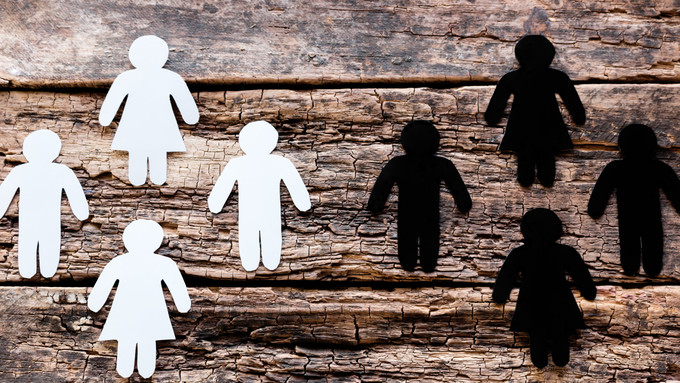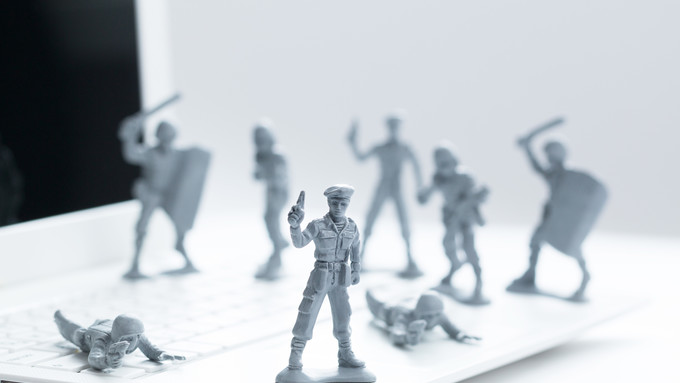If Scholars Don't Speak Truth to Power, Who Will?
When some of them asked [their preachers], ‘Why do you bother preaching to people God will destroy, or at least punish severely?’ [the preachers] answered, ‘In order to be free from your Lord’s blame, and so that they may perhaps take heed.’ When they ignored [the warning] they were given, We saved those who forbade evil, and punished the wrongdoers severely because of their disobedience.” [7:164-165]
These verses are extracted from a story of the Children of Israel in the Quran and their transgression by fishing on the Sabbath. In his commentary, Imam Al-Qurtubi explains that according to these verses, the Children of Israel split into three groups: one group fished on the Sabbath, a group that forbade them from doing so, and a third group that remained quiet, neither transgressing nor forbidding the first group from their transgression. Knowing the expected punishment, the third group asked the preaching one, “Why do you bother preaching…?”
Although it is clear that the group from the Children of Israel that broke the Sabbath was punished, and that the group forbidding them was saved, it is less certain what happened to the quiet group. Imam Al-Qurtubi preferred the opinion that they were also saved, because they did not remain quiet as such, but displayed their disapproval of breaking the Sabbath and isolated themselves until the first group’s punishment was delivered.
The significance of this story in the Quran is in the principle that it teaches, which is about what is expected of a believer when they see a form of transgression taking place in front of them. These verses serve as commentary on two other verses in the Quran. The first one is from Surah Al-Baqarah: “We have made you [believers] into a middle nation, so that you may bear witness [to the Truth] before others and so that the Messenger may bear witness [to it] before you.” [2:143] As Muslims we are told here what quality defines us and how that translates into action. In commenting on this verse, it is related that the Beloved ﷺ explained that a middle nation means a “just nation”.
The second verse comes in Surah Al ‘Imran: “[Believers], you are the best community singled out for people: you order what is right, forbid what is wrong, and believe in God.” [3:110] Imam Al-Qurtubi relates that the best community here refers to the righteous and people of virtue among Muslims, who as mentioned in Surah Al-Baqarah are the witnesses upon other nations.
Over the past three years we, as a Muslim community, have been witnessing some wondrous events in our political landscape, especially in the Middle East. Tyrannical rulers that have been propped up to subjugate the masses have either been toppled, or were toppled only to be exchanged for another version such as the case today in Egypt. Before that we watched, and continue to watch, as the people of Gaza resist the cyclical onslaught of attacks by Zionist terrorists, aided with U.S. weapons and support from the Egyptian and Jordanian governments who close border crossings to make sure Palestinians remain as suffocated and as easy targets as possible.
We watched the Saudi and UAE governments back the Egyptian military in their coup to bring back the oppressive regime that Egyptians rose up against. We saw the execution of a planned massacre in Rab’a Square, acknowledged as the most serious incident of mass unlawful killings in modern Egyptian history. We heard about the Saudi government having to spend $533 million to construct two new prisons in Riyadh and Jeddah, because their jails are too “jam-packed”. On record, there are more than 40,000 prisoners of conscience in Saudi jails.
One could spend pages listing off the atrocities committed by governments in the Muslim world. But when it comes to most of our prominent scholars, especially those living in the Middle East, we hardly hear much of even a word against these injustices. Worse yet, we have witnessed scholars either tacitly support their regimes through their actions, or even openly stand along with oppression against the oppressed, using religious rhetoric to do so.
We mostly hear our scholars speak against U.S. foreign policy, Guantanamo Bay, and cite references such as the 2013 report from Amnesty International on how U.S. drone strikes in Pakistan have torn so many lives apart. What all of these condemnations have in common is that they speak against external forces attacking Muslims. However, when it comes to our own internal political affairs, we see many of our scholars either silent, or standing with tyrannical rulers for photo opportunities right after they pray for their success.
“God does not change the condition of a people unless they change what is in themselves.” [13:11] This verse is often cited by those advocating a focus on changing one’s inner state, i.e., purifying the heart, as a pre-requisite for God changing our outer state. While there is something to this, it is not the complete story. There is nothing in the verse that says the external change will come without any external effort on our part. Moreover, the verse is not speaking about individuals. It speaks about a people. If we apply this to the current affairs of our Muslim community at large, the verse translates to “God will not stop the external attacks against a people and their subjugation by foreign powers until they change their internal political situation, which allows for this to happen in the first place.”
The Beloved ﷺ is related to have said, “Beware of the doors of rulers, for it is extremely debasing.” He also said, “Whoever attends to the doors of rulers will be tested.” Aside from these warnings against rubbing shoulders with rulers, the Beloved ﷺ did allow for one exception where one can go to a ruler, “Verily, from the greatest of Jihad is a word of Truth in the presence of a tyrannical ruler.” It is these teachings of the Quran and Hadith that gave rise to the historical accounts of a number of great scholars who rose up against tyrants, even if it meant not only their torture and imprisonment, but also their death in the most gruesome of ways.
The responsibility upon our scholars to speak Truth to power has never been greater. Too many of them do not appreciate enough how well informed many in the Muslim community are about politics and current events. The silence of a scholar in response to great acts of oppression teaches Muslims to be silent when such events take place. As for scholars who clearly stand on the side of oppression, the damage they inflict is much greater. It is no longer acceptable to compare a scholar to Al-Khidr and claim they may know something we do not. This excuse is often used to absolve some of our scholars from moral accountability based on outward behaviour. We live in a time when information is more readily available than ever. In fact, to claim that a scholar may know something we do not is to affirm they are so close to rulers that they are involved in behind the scene plots, which lead to mass unlawful killings and imprisonments, and that the scholar is fine with it.
Muslim scholars are supposed to be the inheritors of Prophets. They provide the moral compass for the Muslim community at large. It is absolutely within their responsibilities to be well aware of current events and speak against oppression. Otherwise, we cannot claim to be the best of nations or the witnesses that God has decreed for us to be. This is not to say that every individual scholar is required to have a say in politics. But every individual scholar must at the very least condemn oppression when it has clearly manifested itself to everyone. If not, we cannot claim to be the upholders of lofty principles.
Without scholarly guidance, we will see average Muslims taking matters into their own hands, and in cases where prominent scholars stand on the side of oppression we will see some Muslims completely discredit Islamic scholarship. One of the consequences of this is the extreme we witness today with the group calling itself the Islamic State. All of those men who joined this group openly slander all prominent scholars, especially those who seem to have shameful stances in support of oppression against defenseless Muslims. By then, it will be too late to issue condemnations of such extremists and dissociate from their actions, because the question that will present itself will be “Where were you before?”
Activism Related Articles



Why We Must Recapture Scholarly Discourse from Extreme Bloggers
One cannot deny the move towards rhetoric and practice in the Western Muslim community that is more liberal, reformist, and progressive, but the extreme position some have taken in response to it is not only harmful, ineffective, and unwise, but decidedly un-Islamic.